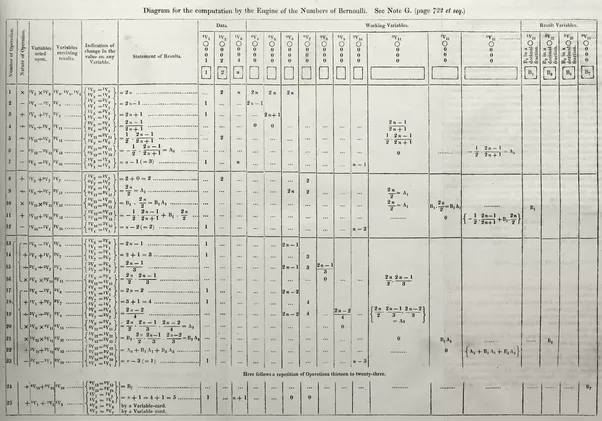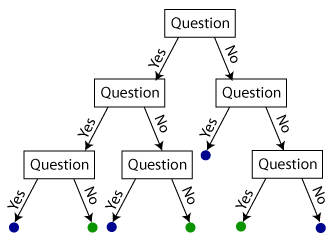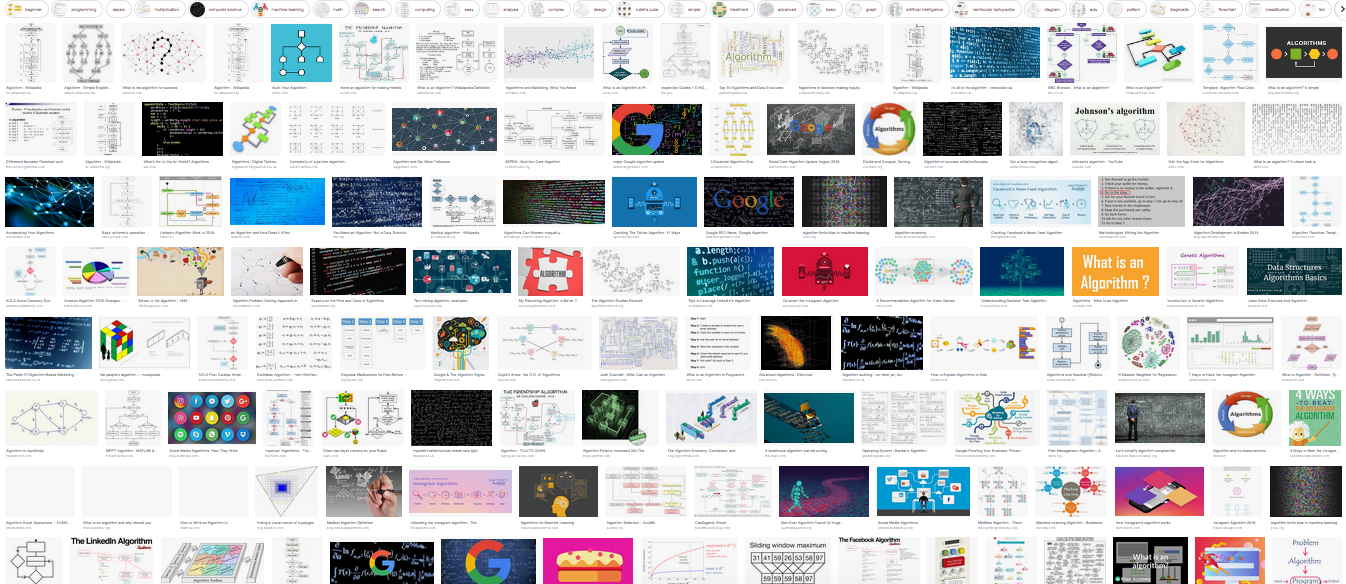Home
III. ALGORYTHM'S SEMANTICS
Between 04/10/18 & 18/10/18
if (creation && object of art && algorithm && one's own algorithm) {
include * an algorist *
} elseif (!creation || !object of art || !algorithm || !one's own algorithm) {
exclude * not an algorist *
}
Jean Pierre Herbet "Herbert Algorithm"
I. Deconstructing "Algorithm"
"Algorithm [draft] [#digitalkeywords]" is a semantical unpacking of the word “Algorithm” as part of Digital Keywords project (Ben Peters, ed). The text works its way through the term's meaning, its distinctive values and operational contexts. This denoting of abstract connotations is quintessential to help us make sense of the narratives built around the term. Besides a general increase of techno-dystopian tales, this text might contribute in helping oneself to stay critical no matter which he/she might be from. Generally speaking, unpacking semantical layers might represent a way to counter dominant discourses and avoid misinterpretation: it gives us agency, but also reveals paths to novel ways of “telling” our world with accuracy.
Meanwhile reading this piece, I stumbled upon an e-flux article from Ho Rui An “Crisis and Contingency at the Dashboard” which is a relevant example of similar linguistic approach toe the use of “crisis” within Singapore’s Smart Nation.
This draft’s intention is explicit, Yet it demonstrates some weaknesses throughout its development. Especially its first part “algorithm as a technical solution to a technical problem“.It seems to propose a technical understanding of algorithm from the perspective of engineers, the section is biased by the author’s judgment. Herein “Algorithms” are described as designed programs applied contextually to proceed various tasks. Yet, the author sometimes steps in and out from its frame of reference. Sentences such as “An algorithm is a recipe composed in programmable steps; most of the “values” that concern us lie elsewhere in the technical systems and the work that produces them.” might have been there to “simplify” the technical definition of an algorithm thus becomes mystifying as it produces a level of abstraction which would not necessarily belong to this valuation scope. (turning a mathematical program into a recipe while trying to explain its technicality and then stipulating that the "real values lies elsewhere" without denoting which "values" and being evasive on this "elsewhere"). Meanwhile, further down, the author introduces a more distinct definition which could have been stated as an introduction;
"For algorithm designers, the algorithm is the conceptual sequence of steps, which should be expressible in any computer language, or in human or logical language."
[ I tend to think that to demonstrate a proper technical understanding of a term, one should be unafraid to use formal "dull" style figures to stay as close as possible to the explanation (This comment feels like a mise en abyme of the text itself)].
Follows a troubling argumentation oscillating between specialised terms and vague arguments canceling previously given technical definition;
“The values, assumptions, and workarounds that go into the selection and preparation of this training data may also be of much more importance to our sociological concerns than the algorithm learning from it.” Such sentences keeps on distancing the reader from the technical understanding of what an algorithm is, putting more emphasise on its sociological apprehension.
Generally speaking, the article feels like a sociological study of the algorithm context of creation and application, rather than a technical emancipatory transmission. I suspect this initial draft to be simultaneously too specific and uncertain as well as contradictory to critically empower non-experts readers toward the term “algorithm”. Whereas, If it’s intended for scholars, I reckon it is very clear in its intention to be open to discussion.
“Sometimes new phenomena emerge that the training data simply did not include and could not have anticipated; just as often, something important was overlooked as irrelevant, or was scrubbed from the training data in preparation for the development of the algorithm.” This sentence incompleteness is an example of the lack of concrete examples; which phenomena? What was overlooked and how come it happens so often?
[For instance, the author might address the geographical and cultural bias of data sets being mainly western centred and that of the empirical intention in data mining from its initiating companies (like Facebook, Google, etc…)].
II. Missing part?: A shift in the creative paradigm.
Further, sentence such as: “To inquire into the implications of “algorithms,” if we meant what software engineers mean when they use the term, could only be something so picky as investigating the political implications of using a bubble sort or a shell sort.” feels too expeditious. I tend to believe that algorithmic most “detailed” and fastidious informations (Like what kind of mathematical formula is used, what kind of data set, which kinds of steps are taken, etc…) are of political relevancy.
To also employ an easy metaphors : as designers, acknowledging which material we use, its origin, its inner structure is as important as its context of usability, whom ordered it, etc… If one does not bear responsibility in recognizing the physical qualities of its material, one sets itself at risk together with the user. It is believable that the author is aware of such argument, yet, it seems his interest lays rather in a sociological analyse of the term rather than looking at the algorithm from several standpoints.
Interestingly, this argument is later contradicted by the following statement: “questions of value are very much bracketed in the early decisions about how to operationalize a social activity into a model and into the minuscule, mathematical moments of assigning scores and tuning thresholds.”
Meanwhile, It is believable that rationalisation is embed in ideas of techno-science progress, I am hesitant if the loop can be closed by stating that algorithms are only “mechanisms that introduce and privilege quantification, proceduralization, and automation in human endeavours.” I would argue that technology is not inherently part of those empirical mechanisms of rationalisation. Algorithms might have been initiated to help rationalisation processes, but it is our responsibility (Scholars, critical people, etc…) to propose alternatives usage (especially from a poetical realm and a phenomenological methodology) while stepping out of such distopyan approach to technology. This dualist criticism, so present in our current epoch, can not lead us to the alternative proposals we should be urgently seeking for.
Indeed, algorithm experiments like algorithmic pareidolia used in deep dreaming or functions like random are of considerable relevance when discussing this dualist approach to technological progress (Machine vs. Human, Rational vs. Organic...). Indeed, with hallucination and randomisation follows the question of creativity and poetry being commonly assigned as a Human-only feature.
The work of Pierre Huyghe: currently displayed at the Serpentine Gallery along with works of generative arts are manifestations of how algorithms which “privilege quantification, proceduralization, and automation in human endeavors” can also lead to aesthetical vibrations, new experiences of the sublime and announce a possible shift in our artistic paradigm.
This leads me to suggest that algorithms could equally be seen as a “raw material” for creative exploration, addressing human machine intersections and introducing a neutral zone of understanding.
Appreciably, Bernard Stiegler’s approach to the pharmacological aspect inherent to any technological progress is a good semantical viewpoint to assess this emancipatory potential; according to his definition on the art industrials lexicon, Bernard Stiegler sees technics as ambiguous human constructs, both source of emancipation and salvation. He uses the internet as an example of being both a liberal and anti-liberal opportunity. For those reasons, he calls for an “attentive” (In French : aware) position toward technologies as he refers to them as Pharmacons; cure, poison and scapegoat at once. Considering such pharmacological approaches, B. Stiegler suggests we should first look at the remedial function of a technology in order to access its cure.
Basing myself on this pharmacological approach, I'd like to suggest algorithms as being creative “raw material” at first. Algorithms are too frequently overlooked form a dystopian (uninformed) perspective or an exclusive scholarly context (this article tends to fall into this), which makes it hard for anyone to project an emancipatory usage of it. Otherwise stated, by framing the scholar discourse within an ambivalent and suspicious scope, it becomes strenuous for potential activists agent to project an emancipatory approach to such technology - being that of desire, poetic or artistic use.
Bibliography
Gillespie, Tarleton. "Algorithm [draft][# digitalkeyword]." Culture Digitally (2014).URL





Additional definition
Machine learning Classification — Medium :
“In machine learning and statistics, classification is a supervised learning approach in which the computer program learns from the data input given to it and then uses this learning to classify new observation. This data set may simply be bi-class (like identifying whether the person is male or female or that the mail is spam or non-spam) or it may be multi-class too. Some examples of classification problems are: speech recognition, handwriting recognition, bio metric identification, document classification etc.”
(https://medium.com/@sifium/machine-learning-types-of-classification-9497bd4f2e14)
Pharmacology — Bernard Stiegler and Are Industrialis:
" In ancient Greece, the term pharmakon designated at once the poison, the cure, and the scapegoat.1
All technical objects are pharmacological, at once poison and cure. The pharmakon is both what permits care-taking and what requires one to take care, in the sense that one must pay attention. It has medicinal power to the extent that it is (and also isn’t) a destructive power. This is what characterizes pharmacology as it tries to grasp, in the same gesture, both what endangers and what saves. All technics is originarily and irreducibly ambivalent: alphabetical writing, for example, has been and still can be just as much an instrument of emancipation as of alienation. If, to take another example, the internet can be described as pharmacological, this is because it is at once a technological device allowing user-participation and also an industrial system appropriating user data for submission to marketing regimes that are both omnipresent and individually traced and targeted through user-profiling technologies.
Pharmacology, understood in this very broad sense, studies organologically the effects brought about by technics and does so such that its socialization involves some prescriptions — that is to say, a system of shared and apportioned care, a common ground of the economy in general, if is true that to economize means to take care. More particularly, Ars Industrialis calls for a pharmacology of attentiveness to the era of technologies of the mind and spirit.
Both poison and cure, the pharmakon can also become a scapegoat for the carelessness that does not know how to play a curative part and leaves it to poison the lives of the incurious — that is to say, those who do not know how to live pharmaco-logically. It can also lead, through its toxicity, to naming scapegoats for the calamitous effects to which it can lead in situations of carelessness. The current mélange of industrial populism and all kinds of political regressions proceeds entirely from this state of affairs – and it constitutes, particularly in Western and Eastern Europe, but also (and above all) in France and Italy, a historic shame for those countries that were once cradles of great artistic, scientific, philosophical and political cultures.
In principle, a pharmakon must always be considered according to the three senses of the word: as a poison, as a remedy, and as a scapegoat (an outlet). For this reason, as Gregory Bateson has emphasized, the treatment program of Alcoholics Anonymous always consists of first placing value on the necessarily remedial (and beneficial) function of alcohol for the alcoholic before entering the process of detoxification.2
That we should always consider any pharmakon proceeding first from the perspective of a positive pharmacology, obviously does not mean that we should not be allowed to prohibit one or another kind of pharmakon. A pharmakon can have toxic effects such that its adoption by social systems, conditioned by given geographical and biological systems,3 is not feasible, and such that its positive implementation proves impossible. This is precisely the question posed by nuclear power."
1. The question of pharmakon entered into contemporary philosophy with Jacques Derrida’s commentary on Phaedrus, in “Plato’s Pharmacy,” in Dissemination (University of Chicago, 1981). The pharmakon as writing (as hypomnēsis) is where Plato fights its poisonous and artificial effects by opposing it to anamnesis as the activity of “thinking for oneself.” Derrida shows that precisely where Plato opposes autonomy and heteronomy, they nonetheless co-compose themselves incessantly.
2. Bateson, Gregory.
3. In the sense proposed by Eloi Laurent in Social-écologie (Flammarion, 2011).
B. Stiegler / Ars Industrialis) Pharmakon, pharmacology
Algorithm’s exemples (images)
_ Algorithmic pareidolia, deep dreaming and Pierre Hughes;
_ Decision Tree;
_ Ada Lovelace : Note G : algorithm for the Analytical Engine to compute Bernoulli numbers;
Additional sources & References
https://media.digitalarti.com/blog/digitalarti_mag/algorithmic_art_the_age_of_the_automation_of_art
http://www.algorists.org/algorist.html
http://dada.compart-bremen.de
http://rhizome.org/editorial/2012/jul/5/prosthetic-knowledge-picks-algorists/
Roman Verostko
Yoshiyuki Abe
Manfred Mohr
http://computer-arts-society.com/static/cas/computerartsthesis/index.html%3Fpage_id=320.html
http://doorofperception.com/2015/10/google-deep-dream-inceptionism/
https://en.wikipedia.org/wiki/DeepDream
https://en.wikipedia.org/wiki/Bernoulli_number
https://shapeofdata.wordpress.com/2013/07/09/random-forests/
https://medium.com/@sifium/machine-learning-types-of-classification-9497bd4f2e14
https://www.analyticsvidhya.com/blog/2014/06/introduction-random-forest-simplified/
https://www.analyticsvidhya.com/blog/2017/09/common-machine-learning-algorithms/
https://www.e-flux.com/journal/75/67133/abnormal-encephalization-in-the-age-of-machine-learning/
The Algorists